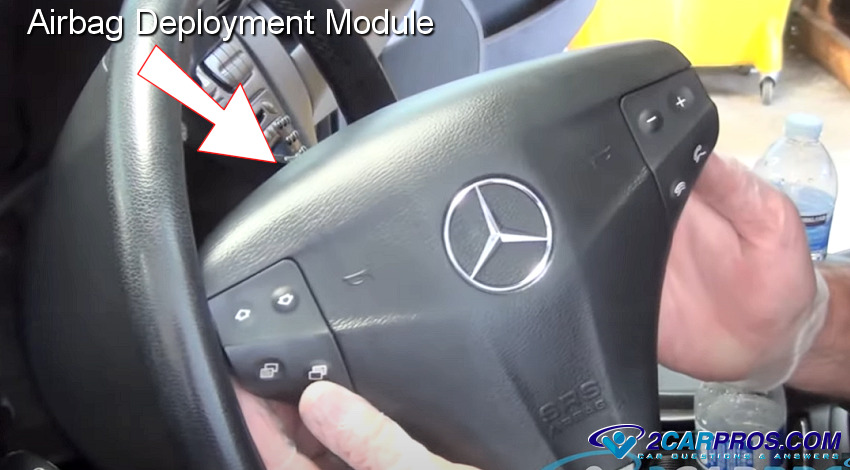First of all, the anti-lock system works on all four wheels. When that yellow warning light is on, the computer has turned the system off.
There's two problems with pressing the brake pedal all the way to the floor. Mechanics know to never do that. Crud and corrosion build up in the lower halves of the bores where the pistons don't normally travel. When you push the pedal to the floor you run the lip seals over that corrosion and can rip them. That can cause no brake fluid pressure to build up at any wheel or it can cause only one half of the system to work resulting in a low pedal and the red warning light turning on.
The second problem only applies to General Motors front-wheel-drive vehicles. There is a valve in the master cylinder that trips and blocks two ports when there are unequal pressures in the two hydraulic circuits. Unequal pressures occur when a hose or steel line pops a leak, or when pedal-bleeding with a helper. When you open a bleeder screw there can be no pressure in that circuit but there will be in the other one. That trips the valve.
Many people also run into trouble when just replacing the brake pads. You have to push the pistons back into the calipers to make room for the new, thicker pads, then you pump the brake pedal a few times to run the pistons back out until the pads contact the rotors. One piston will always come out first, then fluid pressure starts to build in that circuit, but not the other circuit yet. That trips the valve too.
Once that valve has tripped, you will find that no brake fluid will bleed out of one front brake and the opposite rear one. The only way I have ever found to reset that valve is to open one of the bleeder screws that will not flow any fluid, and give it a very short, quick burst of compressed air. This doesn't take a lot of air. You don't want to have to bleed the whole line again. Just a slight tap on the air nozzle will do it.
Try that first, then let the system gravity-bleed with the reservoir cover cracked open slightly to prevent vacuum from building up and impeding fluid flow. When clear fluid is flowing from one caliper, close that bleeder screw and wait for the next one to flow. Once all four bleeder screws are closed, press the brake pedal down just a few inches, then release it. Do that a few times until you feel the normal resistance develop. Open each bleeder screw for a few seconds to remove any air bubbles that washed into the calipers.
If you have to replace the master cylinder, be sure to bench-bleed it before installing it, according to the instructions that will come with it.
I should mention too, for the benefit of anyone else researching this topic and reading this, you used the term "oil". It is extremely important to understand that brake fluid is not oil, and it is critical that no petroleum product ever be allowed to mix with brake fluid. Most mechanics even wash their hands before working with brake fluid to prevent fingerprint oil from contaminating the brake fluid. I did a demonstration for my students every year to show how important this is. I added one drop of engine oil or power steering fluid to a glass container partially-filled with fresh brake fluid, then dropped in a wheel cylinder lip seal. Within one week that seal had grown and become soft and mushy. That's what will happen to every rubber part that contacts brake fluid on the car. The only proper repair for that is to replace every part in the entire brake system with rubber parts or seals inside, flush and dry the steel lines, and refill it with new brake fluid. That gets to be a real expensive repair.
Thursday, January 10th, 2013 AT 12:10 AM



